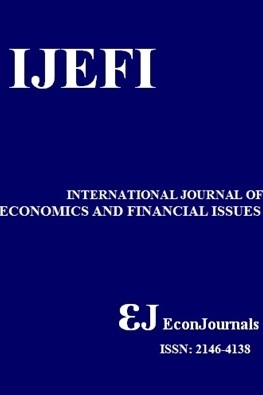Productivity of Labour and Salaries in Russia: Problems and Solutions
Productivity of Labour and Salaries in Russia: Problems and Solutions
Productivity of labour, Salary, Salary payment, Ratio of labour productivity growth to the rate of wage growth Productivity factors, Minimal salary, Forms and systems of salary payment, Setting of labour quotas, Fictitious piecework.,
- Başlangıç: 2011
- Yayıncı: İlhan ÖZTÜRK
Economic Globalization: Challenges and Threats of the Russian National Security
Olga Mikhailovna Shevchenko, Alexandr Viktorovich Dyatlov, Zarema Khasambievna Kurmalieva, Yury Grigorievich Volkov, Alexandr Vasilyevich Popov
Natalia P. KOPTSEVA, Vladimir İ. KİRKO, Vladimir İ. PETRİSHCHEV
Andrei İ. FİSENKO, Valentina V. KOMAROVA, Olesya İ. NEKRASOVA, Alexsandra V. MİLAİ
Corporate Portfolio of the Oil and Gas Production Enterprise
Maria L. VİLİSOVA, тatiana V. ZAİTSEVA, Gennady A. BURYAKOV
İrina V. VOLCHKOVA, Maria N. DANİLOVA, Yulia V. PODOPRİGORA, Evgeniya V. UFİMTSEVA, Alexey A. SELİVERSTOV, Nikolay R. SHADEYKO
Natalia O. NEMAEVA, Anastasia M. OBMOROKOVA, Aleksei V. KHVASTUNOV
V. A. SAVİNOVA, D. Z. VAGAPOVA, M. G. SOROKİNA
Assessment of Human Capital in the Agricultural Enterprises of the Republic of Kazakhstan
Zhanna Serikovna BULKHAİROVA, Karlygash Toleubaevna ALENOVA, Anar Zhaskaratovna NUKESHEVA, Aliya Sabirzhanovna ISMAİLOVA
Peculiarities of Formation of Innovative Territorial Clusters in Russia
Vladimir Leonidovich KURBATOV, Maria Vasilyevna KHALİNA, Svetlana Vladimirovna Volkova
